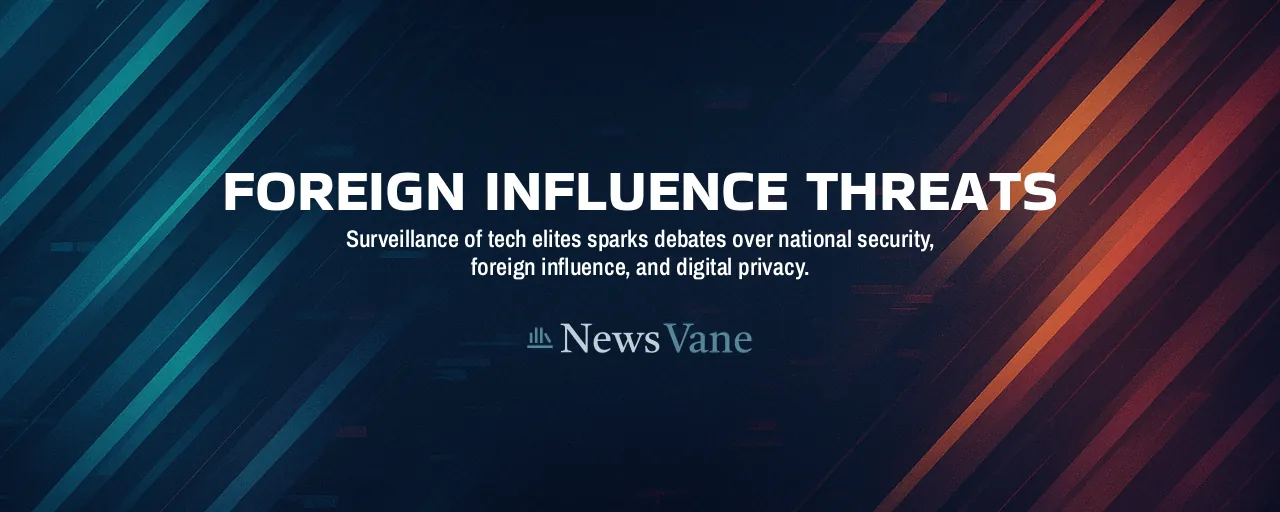An Unexpected Spotlight
Between 2022 and 2023, U.S. agencies kept tabs on foreign nationals visiting Elon Musk's properties in California and Texas. The effort, led by the Department of Homeland Security and Justice Department, sought to uncover potential attempts to sway the tech mogul. Reported by The Wall Street Journal, this operation has raised eyebrows, prompting questions about why a private citizen's guests attracted such attention.
Musk's influence spans technology, policy, and global communications. His role in the Department of Government Efficiency and control over Starlink's satellite network place him in a rare position of power. The possibility that foreign actors might target him seems plausible, yet the surveillance's breadth invites scrutiny about its implications.
A Long History of Influence Concerns
Worries about foreign efforts to shape U.S. leaders stretch back centuries. From France's 1796 push to influence voters to recent indictments under the Foreign Agents Registration Act, the threat persists. The Justice Department recently charged two Russians with funneling $10 million to a U.S. media group, while cases tied to former Rep. Henry Cuellar and Sen. Bob Menendez revealed foreign payments for policy sway.
Musk's global stature makes him a prime target. Agencies monitored visitors, particularly from Eastern Europe, using geofencing and passport scans. While no charges have surfaced, the operation reflects growing unease about nations like Russia or China exploiting prominent figures to advance their agendas.
Surveillance in Today's World
Tracking Musk's visitors aligns with broader U.S. surveillance trends. Section 702 of the Foreign Intelligence Surveillance Act allows agencies to collect global communications, often capturing Americans' data. The FBI's 278,000 warrantless searches in a year have drawn fire from privacy advocates who argue these practices undermine constitutional rights.
The government has also poured resources into merging federal and commercial databases, linking airline records, voter files, and social media. These systems, built with tech firms, aim to spot threats like gang activity but often lack judicial oversight, sparking debates about their scope and accountability.
The Power of Tech Titans
Musk's unique role amplifies these concerns. His advisory position under the Trump administration granted him access to sensitive briefings without standard clearances. His threat to disable Starlink in Ukraine highlighted his sway over military systems. Such influence raises questions about whether tech billionaires could become channels for foreign interests.
Those favoring strong surveillance argue it's essential to protect national security. If foreign actors manipulate figures like Musk, the fallout could disrupt critical systems, from satellites to AI. Balancing this risk with respect for privacy remains a persistent challenge.
Security vs. Personal Freedom
The surveillance operation has fueled tensions between security and privacy. Liberal advocates and civil liberties groups warn that unchecked data collection threatens freedoms, citing instances where journalists or activists were targeted. They also criticize Musk's unmonitored role in government, pointing to his agency interventions as potential conflicts.
On the other hand, those focused on security, including some Republican leaders, stress the need to counter foreign threats. They see immigration and influence campaigns as pressing dangers, supporting data-sharing with private firms. Yet even among them, some question federal overreach, reflecting a divide in perspectives.
Navigating the Future
The monitoring of Musk's guests highlights competing priorities. Protecting national security requires vigilance, especially as tech leaders gain unprecedented influence. However, broad surveillance risks undermining trust and eroding personal freedoms.
As technology reshapes global power, the U.S. faces careful choices. Tighter oversight of billionaires in government could prevent conflicts, while also preserving innovation. Similarly, surveillance aims to target real threats without ensnaring innocent people's data.
For everyday Americans, this situation serves as a reminder that the systems governing security and privacy are changing fast. Staying informed and engaged helps ensure these shifts align with our shared values, safeguarding both protection and freedom.
